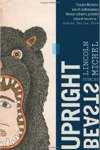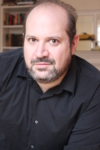Last winter, Full Stop introduced “The Situation in American Writing,” a questionnaire adapted from The Partisan Review that asked questions about literature’s responsibility to address seismic changes in culture, the publishing industry, and the political and geopolitical landscape. That questionnaire, which featured responses from Marilynne Robinson, George Saunders, Victor LaValle, T.C. Boyle, Dana Spiotta, and dozens of other writers was illustrative of the concerns and preoccupations that writers carry with them when practicing their craft.
This year we are interested in the situation of writers, rather than writing, in the subjective experience of writing fiction (or in this case, memoir), rather than fiction’s responsibilities to respond to a rapidly changing world. To this end we are interested in examining the trying intellectual, creative, and emotional labor that is often unacknowledged or effaced in the public presentation of writing. What we’re interested in, to put it another way, is pathos.
This year, we’ve crafted a questionnaire asking writers about the effect writing has had on their physical, emotional, and economic health; on the idea of poverty being a precondition for writing well; on what makes writing truthful to one’s self and to readers. Ultimately, we are interested in the consequences of pursuing writing as a vocation.
Amelia Gray is the author of a novel, Threats, and two collections of short stories. She is very funny on Twitter.
How has your decision to write affected your health? Has it had negative effects on your personal life?
Funny, just a few hours ago an acupuncturist was asking me what happened to me six years ago that started my night terrors and the shooting pain in my back and hips. She wondered if I had been in a car accident, had a bad fall, etc. I said, “The only thing that happened that year is that I seriously started writing fiction.” She said, “Interesting.”
There is long tradition that links the craft of writing with poverty. Do you think that’s appropriate? Does poverty feel like the most appropriate condition for your practice as a writer?
Leisure is the most appropriate condition; I imagine the kind of true poverty that finds its way into a full-time retail job with no health insurance and screaming children and no heat in the winter would not lend itself to creative work. I am currently unemployed and low on funds but I have enough to get by, if not fully comfortably, at least with the time and energy to think and write.
In a rare 1983 interview the enigmatic and often dour Romanian writer Emil Cioran speaks about only reading Nietzsche’s letters because he became concerned with how untruthful Nietzsche’s published works seemed when read against the miserable condition of his day to day existence (isolated, weak, sickly, certainly not characterized by any sense of vigor). Is there any sense in which the truth of one’s condition should be related to the truth of one’s writing, even if in an oblique sense?
I suspect that the more isolated, weak and sickly one must live, the more vigorous one’s internal life becomes. Think of R.L. Stevenson’s A Child’s Garden of Verses, which he wrote bedridden with tuberculosis. Or the poetic leaps in The Diving Bell and the Butterfly, by Jean-Dominique Bauby, who had locked-in syndrome. Perhaps it is more correct to say that the truth of one’s self, not one’s condition, is related to the truth of one’s writing.
Are you envious of other people’s success? If so, are you more envious of people’s success in your field or outside of it? Why?
I might be envious of others if I didn’t feel I was doing my best.
Aside from writing, do you have any other marketable skills? If so, are you ever tempted to cease writing fiction entirely so you can live a more stable life?
I can write marketing copy, create a poor-but-functional website, teach business communication and comp. I have fast 10-key skills and I am good at following directions. Unfortunately, writing fiction is the only thing that gives me stability.
Give one example in which you had high hopes for success (artistic, commercial, or otherwise) but had those hopes dashed.
I once had an interview to become a technical writer at an IT company. I bought a navy blue skirt suit and blazer from Banana Republic. It was an all-day interview on the campus and included breakfast, lunch and dinner, with lots of candidates for technical and managerial positions. At breakfast, I fumbled with a pair of tongs when putting a cinnamon roll on my plate and the pastry fell down my blazer and tumbled a sticky, wet icing line down my skirt before hitting the floor. I wanted to seem like a team player and so I got down and picked it up and ate it really quick. I did not get the job.
Do you feel like the world owes you a chance to make a living as a writer?
The fact that people might actually think this way makes me fear America.
What is the strongest emotional reaction you have ever elicited from a reader, either in your written work or during a reading? What is the strongest emotional reaction you have ever elicited from yourself during the writing process?
A reader from Wisconsin emailed me to say, “I’m on page 262 of THREATS. It’s too good to end so I’m taking it a paragraph at a time. So far I’ve found two disappointing sentences, one not perfectly worded, the other containing a minor typo, which means it’s the best written book I’ve ever read. I’ll be 65 in December.” Seems pretty emotional. After finishing the book I had a strong urge to shout at passer-by and take my top off.
When are you at your most truthful as a writer?
When a lie would be fruitless.
This post may contain affiliate links.








